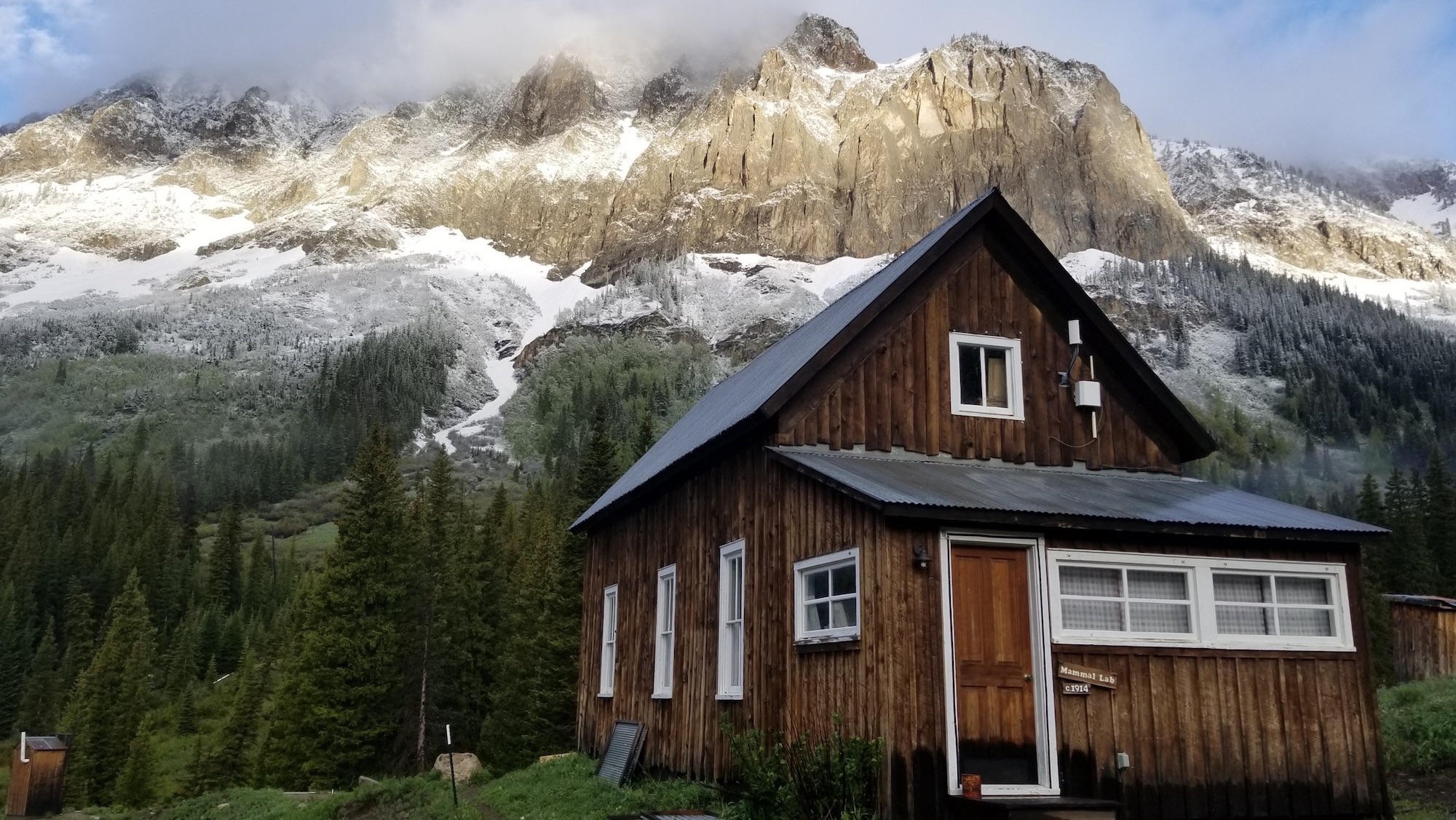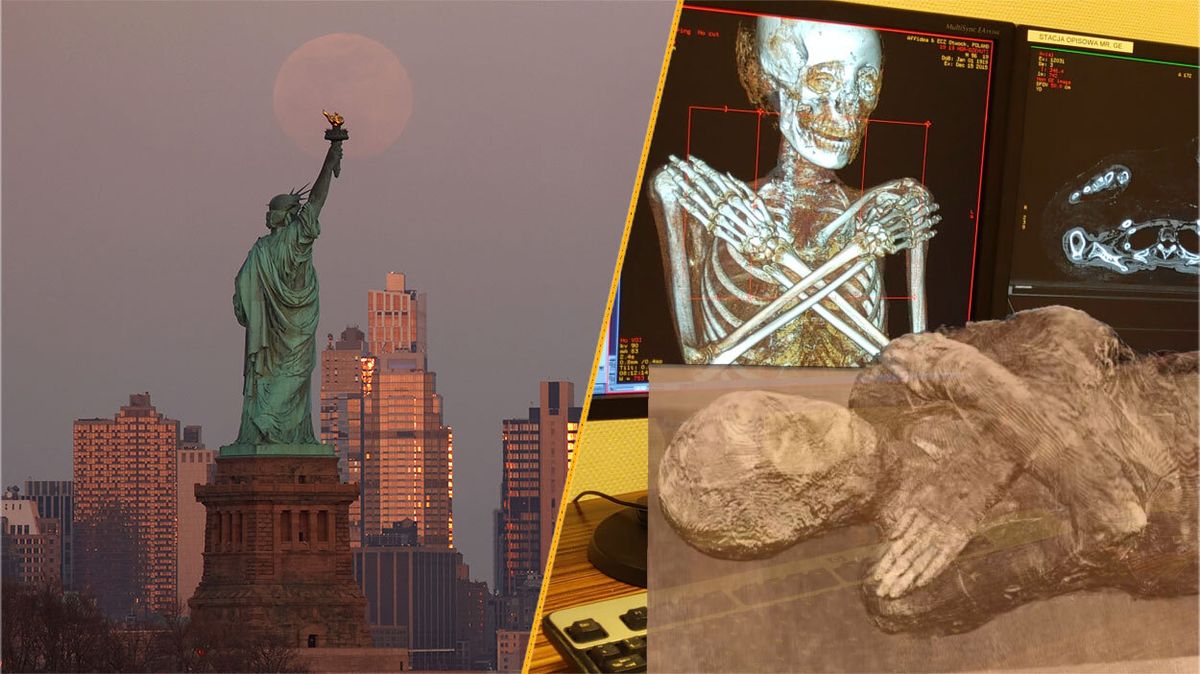High-Altitude Science: Inside the Hidden Research Powerhouse of Colorado's Alpine Labs
Science
2025-05-03 17:01:00Content

Nestled in the heart of Colorado's stunning Gothic Valley, the Rocky Mountain Biological Laboratory (RMBL) stands as a beacon of scientific discovery and ecological research. Founded in 1928, this remarkable research station has become a world-renowned hub for scientists studying alpine and subalpine ecosystems.
Situated at an elevation of 9,500 feet, the laboratory offers researchers an unparalleled natural laboratory where they can explore the intricate relationships between plants, animals, and their environment. Over the decades, RMBL has cultivated a rich tradition of groundbreaking ecological research, attracting scientists from around the globe who are passionate about understanding the delicate balance of mountain ecosystems.
The laboratory's remote and pristine location provides researchers with a unique opportunity to conduct long-term studies on climate change, biodiversity, and environmental adaptation. From tracking wildflower blooming patterns to studying the complex interactions of mountain wildlife, RMBL continues to be at the forefront of ecological science, contributing invaluable insights into our understanding of natural systems.
Unveiling the Sanctuary of Science: A Deep Dive into the Rocky Mountain Biological Laboratory's Pioneering Legacy
Nestled in the breathtaking landscape of Colorado's high-altitude wilderness, the Rocky Mountain Biological Laboratory stands as a testament to human curiosity and scientific exploration. This remarkable research institution has been a beacon of ecological understanding, transforming our comprehension of natural systems through decades of groundbreaking research and unwavering commitment to scientific discovery.Where Nature Meets Cutting-Edge Research: Exploring the Frontiers of Ecological Understanding
The Genesis of Scientific Excellence
The Rocky Mountain Biological Laboratory emerged from a visionary concept that transcended traditional scientific boundaries. Founded in the late 1920s, this extraordinary research center was strategically positioned in the heart of Gothic, Colorado, a remote mountain location that would become a crucible of ecological innovation. The founders recognized the unique environmental conditions of the region—its pristine alpine ecosystems, diverse biological communities, and relatively undisturbed natural landscapes—as an unparalleled laboratory for scientific investigation. The geographical isolation of the facility was not a limitation but a strategic advantage. Researchers could observe complex ecological interactions with minimal human interference, creating an unprecedented opportunity to study intricate environmental dynamics. The rugged terrain, characterized by its dramatic elevation changes and diverse microclimates, provided researchers with a living laboratory that could yield insights into complex biological systems.Pioneering Ecological Research Methodologies
Throughout its illustrious history, the laboratory has been at the forefront of developing innovative research methodologies that have revolutionized ecological science. Scientists working at this facility have consistently pushed the boundaries of traditional research approaches, implementing long-term observational studies that track environmental changes over decades. The research teams have developed sophisticated monitoring techniques that allow for unprecedented precision in understanding ecosystem interactions. By utilizing advanced technological tools and maintaining meticulous long-term data sets, researchers have been able to document subtle environmental shifts that might otherwise go unnoticed. These comprehensive studies have provided critical insights into climate change impacts, species adaptation, and ecosystem resilience.Biodiversity and Conservation Insights
The Rocky Mountain Biological Laboratory has been instrumental in generating groundbreaking research on biodiversity conservation. Researchers have conducted extensive studies on alpine and subalpine ecosystems, documenting species interactions, population dynamics, and environmental adaptation strategies. By focusing on specific ecological niches and conducting detailed population studies, scientists have developed comprehensive models that help predict potential future environmental scenarios. These research outcomes have significant implications for conservation strategies, offering policymakers and environmental managers critical information for developing sustainable management approaches.Technological Innovation and Research Infrastructure
The laboratory's commitment to scientific excellence is reflected in its state-of-the-art research infrastructure. Modern research facilities, equipped with cutting-edge technological resources, enable scientists to conduct complex experiments and collect precise environmental data. Advanced monitoring systems, including remote sensing technologies and sophisticated data collection platforms, have transformed the way ecological research is conducted. These technological innovations allow researchers to gather comprehensive datasets that provide nuanced insights into environmental systems, bridging the gap between traditional field research and contemporary scientific methodologies.Global Impact and Scientific Collaboration
While physically located in a remote mountain region, the Rocky Mountain Biological Laboratory has maintained a global scientific perspective. The institution has fostered extensive international collaborations, creating a network of researchers dedicated to understanding complex ecological systems. Through strategic partnerships with universities, research institutions, and environmental organizations worldwide, the laboratory has amplified its research impact. These collaborative efforts have enabled knowledge exchange, facilitated cross-cultural scientific dialogue, and contributed to a more comprehensive understanding of global ecological challenges.RELATED NEWS
Science

Breaking: Yale's Scientific Powerhouses Honored with Prestigious AAAS Fellowship
2025-04-02 05:04:05
Science

Rocket Scientist and Author Cecilia Aragon Sparks Inspiration at UNM's Student Activities Event
2025-03-01 12:00:00
Science

Rocket Science Revolution: Why NASA's Research Leadership Matters More Than Ever
2025-04-12 01:10:21





